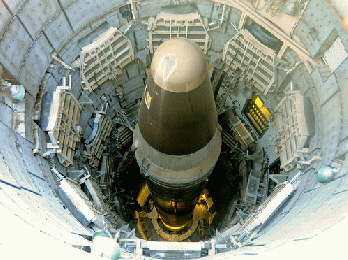We live in an uncertain world.
President Donald Trump was just turned out of office in the presidential election and it looks like we're in for an interesting few months before President Joe Biden is sworn in. There is a geopolitical struggle in the world between various power blocks with the United States and its allies in the North Atlantic Treaty Organization in Europe and in the Quadratic Security Dialog in Asia and Russia and China are in the Shanghai Cooperation Organization. The United Nations recently passed the Treaty on the Prohibition of Nuclear Weapons, which attempts to ban all nuclear weapons. However, no country that possesses nuclear weapons, including the United States, passed the treaty. The new treaty contributes to meeting the obligations of the 1968 Nuclear Nonproliferation Treaty, which committed all signing nations to pursue negotiations related to reducing the nuclear arms race.
While the new treaty delegitimizes the use of nuclear weapons, it means nothing if no nuclear-armed states sign it. In his story "The Nuclear Barn Treaty: A Much Needed Wake Up Call," Arms Control Association Executive Director Daryl Kimball said that nuclear-armed countries should acknowledge the arrival of the treaty and at least begin a legal framework for the use of nuclear weapons. He recommended that the United States should bring home its tactical nuclear weapons from bases in Belgium, Germany, Italy, the Netherlands, and Turkey as a step that would enable these countries to join the TPNW.
Kimball recommends other actions such as freezing the size of nuclear arsenals and fissile-material stockpiles, concluding a multilateral agreement on no first use of nuclear weapons, securing the ratifications needed to bring the Comprehensive Test Ban Treaty into force, reviving the U.S./Russian disarmament process banning the introduction of new nuclear weapons, and concluding legally binding commitments to target or threaten non-nuclear weapons states. The CTBT is a 1996 treaty that prohibits nuclear weapons test explosions. It was signed by 184 countries but not the U.S.
For any of these ideas to become a reality, the U.S. must cooperate with geopolitical competitors like China and Russia, as stated by Robert Einhorn in his story "Revitalizing Nonproliferation Cooperation with Russia and China." There are historical markers for cooperation. Despite periods of bilateral rivalry, the U.S. and Soviet Russia often found ways to cooperate to keep the Cold War out of the nuclear sphere. China was a latecomer to nuclear non-proliferation. During the Cold War, it advocated the spread of nuclear weapons to break the hegemony of the superpowers. However, there was a change in the 1990s when it began to voice some support for nonproliferation. China felt that by adhering to nonproliferation norms that it could maintain a more stable international environment to help its development, maintain the non-nuclear status of Japan and its neighbors, and increase its status as a member of the UN Security Council. It joined the NPT and other nonproliferation organizations. China and Russia were willing to cooperate with the United States in the Joint Comprehensive Plan of Action and China has shown a willingness to pressure North Korea to give up its nuclear ambitions.
The Trump administration's actions have made the tensions between power blocks worse. Trump left the JCPOA, which was opposed by Russia and China. China feels sanctions on North Korea have caused the country to dig in its heels.
The level of distrust between our country and Russia and China will be difficult to overcome. China has been willing to engage with our country when relations between it and the U.S. were good. However, China's obsession with Taiwan and its fear of a successful U.S./North Korea nuclear arms deal, as it would increase U.S. influence in the region, make relations tough.
(Note: You can view every article as one long page if you sign up as an Advocate Member, or higher).





